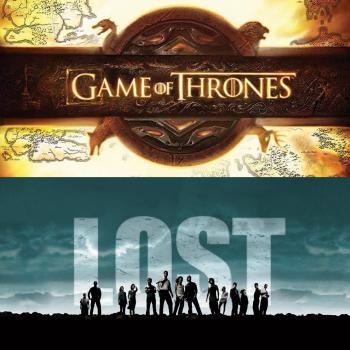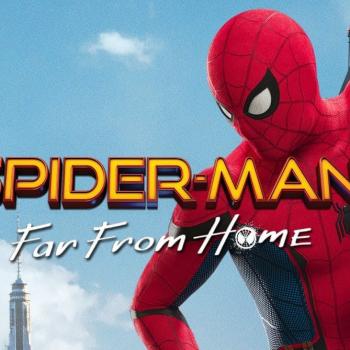
“Hey, beautiful.”
I scowled at my phone.
Another day, another cut and paste come on.
I picked up my phone and wrote back:
“Ah! The common effluvia of the disinterested salutation.”
A few minutes passed.
From the stranger: “So, what u up to?”
I didn’t respond.
The Problem of Dating in a World of Disconnect
As far too many before me have lamented (seriously, check out Verily’s whole dating section), trying to make a meaningful connection in a world of dating apps is difficult. On Bumble I found more men just looking for a hook-up, despite the app touting itself as the feminist option. Coffee Meets Bagel actually managed to land a single phone date, and a few not-hideous conversations, while giving me a feeling of safety from the real creeps out there. Even Tinder has switched from being the skeevy no-man’s land to a way to message prospective beaus…or rather, swipe right, and then mutually ghost.
The problem, of course, is that we cannot encounter the full person through an app. Whether dating, or just stalking your on-line hero (Hiya, Rebecca Bratten Weiss!), we know that the carefully curated snippet of photos, quotes, and curios barely indicate at the person within.
Having worked with teenagers for ten years, mentoring and teaching, I know that I’ve purposely curated a more transparent view of my personhood on-line. (Because teens can smell hypocrisy a mile away.) However, the deepest parts of me are not on display. As is true for any person. And the fun of getting to know another person via app is in many ways taken out, categorized, and boxed in this iLife.
What Big Eyes You Have
So what’s so “wrong” about telling a girl she’s pretty? I mean, what else should you say when you’re trying to approach a woman? Well, as with all words, it depends on context. Two men can compliment my looks, and in one it’s sexual harassment, and in another – as you’ll read later – it’s romantic.
What’s a guy to do? Let me break it down for you.
If you know me, and have verbally admired more than just my looks, then by all means add to the list of compliments about my beauty. Do you know me, and know that I’m having a rotten self-esteem day, or I’m trying on a new eye shadow regime, or I’m struggling to regrow my hair? Then, if you know me, by all means compliment my clothes, my make-up, my hair, myself.
But in all these contexts: you know me.
With dating apps, although several attempt to give deeper conversational spring boards, so many men begin with “Hey, beautiful.” Which, given the nature of the go-fish set-up of the app, is a signal that the fellow on the other end has copied and pasted that exact sentiment to every single match. Which means that he can’t be bothered to see what your name is and use it. By using “Hey, beautiful,” the most fundamental acknowledgement of the other person – that is, the woman’s name – is dismissed.
What is lacking in dating apps, if I may modify Lewis’ Till We Have Faces:
“When the time comes to you at which you will be forced at last to utter the speech which has lain at the center of your soul for years, which you have, all that time, idiot-like, been saying over and over, you’ll not talk about the joy of words. I saw well why the women on dating apps do not speak to us openly, nor let us answer. Till that word can be dug out of us, why should they hear the babble that we think we mean? How can they meet us face to face till we have faces?”
Coming off the heels of #MeToo, such lingual objectification is disheartening to say the least. And the desire to opt out of the “idiot-like babble” is strong. But there’s another form of objectification on the other side of the Tiber, too.
More Than Just a Check-Mark
Last year, while lamenting via Facebook about the state of dating, a household brother from Steubenville chided me to stop dating secular men and to only pursue Catholic men. (More on this in a moment.) A few months later, while writing about toxic vs. positive masculinity, I received several unsolicited notes from my Catholic male readership – all strangers – telling me in various ways that I had a duty as a Catholic women to let Catholic men pursue me, whether I was interested or no, and that I would be happier if only I would shut up, return to my (theoretical) babies, and get in the kitchen (actual quote).
My experience on Catholic Match, there’s an expectation that a “virtuous wife” is one who will want to stay at home, raise and homeschool a passel of kids, move to wherever her man is, and probably wear a mantilla. Now, half my household sisters were called to just such a vocation. This is their theodrama. But it does not necessarily follow that this is the only theodrama. It is an ideation; not an actuality.
At the time, I hadn’t the language to explain why this attitude of advertising for meek and Marian (and fertile) wives, as though this were settling the wild west times, which I have found prevalent among many Catholic single acquaintances is just as rapey, just as domineering as the leering guy on Bumble who’s hoping I want to hook up with him.
To both groups of men, I – as a single woman – am a commodity. Not a person.
I am a series of check marks. To the man looking for a hook-up, I am a pair of breasts, a rump, a piece of meat. The Catholic man does looks inside, but no further than my uterus. Neither group sees me.
And it’s more difficult to explain to my fellow Catholic why his virtue-signalling is so demeaning. Because, after all, marriage is a beautiful vocation, and children are a blessing. But go back to your Love and Responsibility: love is only love in the particular. Love of the other as other. Not in the checkmark idealization, the fetishization of the sacrament as salvation in itself.
The Emotional Chastity Belt
In regards to my well-meaning but misinformed household brother, nearly all the men I’ve dated I met in real life and were Catholic.
Among those Catholic beaus, though, there was a mildness which went far beyond gentility and round the corner to the same juvenile underpinnings of the selfishness of the hook-up, and the selfishness of wanting any virtuous womb with a view. (Check out Eye of the Tiber for spot-on hilarity about this.)
In this childish manifestation, common among good, Catholic men, there’s such a timidity born, I think, from being too sheltered as so many of us were. In this iteration, dates are asked for, accepted, and then downgraded to an endless round of “hanging out.” Embraces are initiated, and then fumbled: never to be repeated or perfected. There is no confidence…
…except when it comes to matters of specific knowledge. The enthusiasm others might reserve for video games, programming, sports, or whatever one’s passion might be, is manifested in chapter and verse of Belloc. Which is all very well in theory, but the relationship then remains in theory. So many Catholic gentlemen (and women – probably myself included) are so respectful, they remain as much a cipher in real life as they may do on-screen.
At a Love and Responsibility lecture I attended a few years ago here in New York City, we were enjoined to remain “emotionally chaste” – which I think may be one of the most damaging sentiments I have ever heard. And in direct contradiction to our dear old Lewis, who described love this way:
“To love at all is to be vulnerable. Love anything and your heart will be wrung and possibly broken. If you want to make sure of keeping it intact you must give it to no one, not even an animal. Wrap it carefully round with hobbies and little luxuries; avoid all entanglements. Lock it up safe in the casket or coffin of your selfishness. But in that casket, safe, dark, motionless, airless, it will change. It will not be broken; it will become unbreakable, impenetrable, irredeemable. To love is to be vulnerable.”
So how do we do that? How do we escape the app, the hook-ups, the hang-outs, the fantasies, the timidity?
The answer: we need to really see each other. And let ourselves be seen.
The Language of Love
The most beautiful love letter I ever received, the most significant romantic relationship I’ve had to date, was with a man who would call himself an ex-Catholic, a liberal, an extreme feminist…a lot of things I’m not. (There are also significant reasons why we’re not together.) He was also mind-blowingly generous, and kind, and curious, and supportive, and inventive, (and sexy) – and most of all, he took the time to see.
This is what he wrote, after a year of knowing each other:
Hey, dear,
I just wanted to say thank you. For coming over yesterday and sharing more of yourself than you usually do. I hope you know, in your heart of hearts, how much I truly value you and your friendship; exactly as delightfully strange and boisterous and beautiful and gracious and graceful and insightful and supportive and courageous and omni-talented and black-vortexy and vulnerable as you – uniquely you – always are.
What makes me lose my breath, even years later, even after the heartbreak and the distance and the indifference that naturally grows when you grow apart, is the specificity. Strangeness is delightful. Boisterousness enhances beauty. Here is not one impersonal compliment, one single hollow “hey beautiful” (this was actually the first time he used that word; we were both poets: words were important). Here is not one dictation of what my future will be, whether I want the same future or not. Here is no timidity: he felt it, the words were true, he told me. And he knew me well enough by then to know that, in all my brokenness, I was in a place to receive them.
I wish for everyone that people in their lives know them well enough to conclude every sentiment with “you – uniquely you.”
Out of the App Trap
I don’t think we’re doomed – no matter whether we’re Catholic or secular or whatnot – to remain solitary and on-line presentative forever. Great friendships, great mentorships, great partnerships develop along similar lines of “getting to know you – uniquely you.” So can our romances mirror the Romance.
The challenge is how to do we open up? How do we see each other face to face? How do we gain faces?
______
 Photo courtesy of Pixabay.
Photo courtesy of Pixabay.












